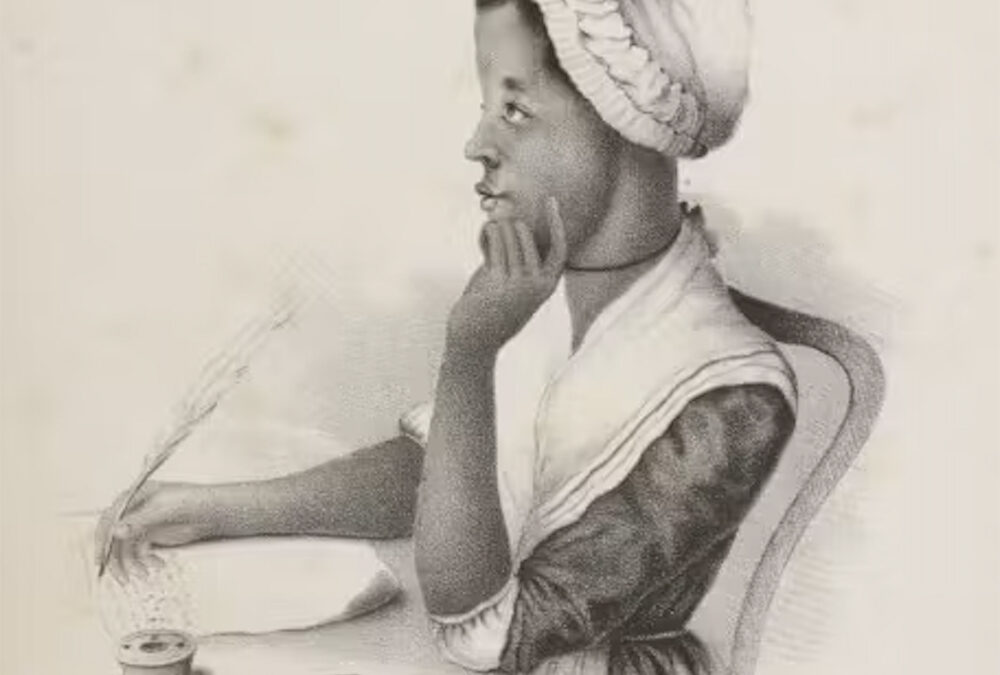Let It Grow
By Tammy Thornton
During the turbulent times of the Revolutionary War, some names were forever etched into American history. From our earliest education, we were taught about George Washington, Benjamin Franklin, John Hancock, Samuel Adams and Betsy Ross. However, you may have missed learning about a young African American girl named Phillis Wheatley. Unfortunately, her story is a tragic tale, but she shined brightly despite her circumstances and her short, difficult life.
At a very young age, Wheatley was kidnapped from her West African village, forced into slavery in the 1760s, and sent to serve the Wheatley family in Boston, Massachusetts. By all accounts, the young girl was frail and sickly and most likely suffered from asthma, but she was found to have a great capacity for learning. The Wheatley family taught her reading, writing, religion, language, literature and history. In a short time, she was able to read Greek and Latin classics and British literature. The girl also showed an aptitude for writing poetry. She studied the works of poets Alexander Pope and John Milton, among others. Like Shakespeare, Wheatley often wrote in iambic pentameter, a rhythmic pattern common in English poetry and drama.
One of Wheatley’s first published poems that gained attention was an elegy written for George Whitefield, a famous preacher who traveled through the American colonies. The elegy was released as a pamphlet in 1770 in Boston, Newport, and Philadelphia. She was later taken to London, England, where she was able to gain support to publish her book, “Poems on Various Subjects, Religious and Moral,” published in 1773. Because people of that time did not believe that an enslaved woman could write so well, prominent men from Boston, including John Hancock, signed the preface of her book to attest to Wheatley’s authorship. Shortly after the publication of her book, Wheatley was finally manumitted from her life of slavery.
Wheatley wrote a letter that included a poem to George Washington in 1775, praising his leadership during the Revolutionary War. He wrote back to her, praising her “elegant lines” and “great poetical talents”. This poem was published in 1776 in both the Virginia Gazette and the Pennsylvania Magazine. Historians believe that Wheatley and Washington met after he invited her to visit in 1776.
Though she achieved international fame, life was not easy for Wheatley, especially as a newly freed slave during the Revolutionary War and the hardships of its aftermath. In 1778, she married John Peters, and it is believed that they had three children, though none of them survived infancy. In 1785, her husband was sent to debtor’s jail, and Wheatley (Peters) went to work as a maid. It is thought that she died of pneumonia at the age of 31, in 1784.
Wheatley wrote about religious themes as well as the horrors of slavery. Her writing emphasized reason, moral virtue and individual rights. Here is a small portion from the third stanza of her poem “On Virtue”:
But, O my soul, sink not into despair,
Virtue is near thee, and with gentle hand
Would now embrace thee, hovers o’er thine head.
Fain would the heaven-born soul with her converse,
Then seek, then court her for her promised bliss.
Tammy Thornton lives with her husband, children, and crazy pets while enjoying a life of gardening, cooking, and going to the beach.















